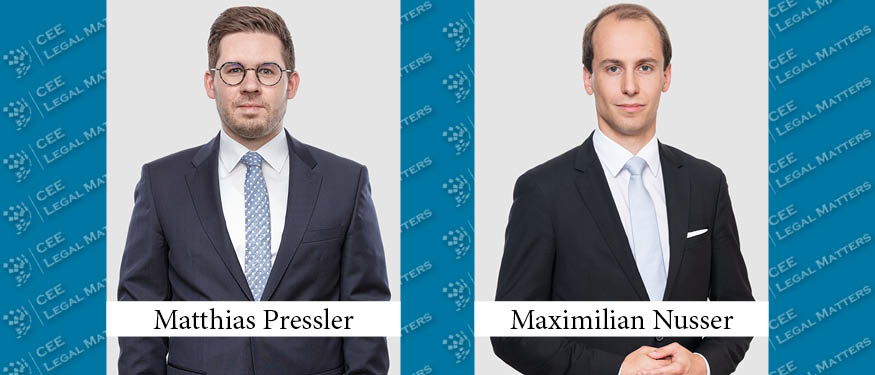On 20 April 2023 the European Parliament ("EP") finally approved the regulation on markets in crypto-assets ("MiCAR"). The approved final text of the MiCAR is yet to be formally endorsed by the Council, but the EP's approval means the biggest legislative hurdle towards the MiCAR entering into force has been cleared. The approval of the MiCAR follows the finalisation of the last details of the text, after a provisional agreement on the final draft compromise was reached during trilogue negotiations in June 2022.
The MiCAR is part of a larger legislative digital finance package, which aims to develop a European approach that fosters technological development and ensures financial stability and consumer protection. Besides the MiCAR, the package includes, among other things, the Digital Operational Resilience Act, the distributed ledger technology ("DLT") pilot regime and the recast of the transfer of funds regulation (which was passed alongside the MiCAR by the EP).
Timeline and transitional period
The MiCAR will enter into force 20 days after being published in the EU Official Journal (expected in June 2023). It provides for an 18-month transitional period after which the MiCAR will fully enter into application to enable Member States, EU regulatory agencies and national competent authorities to pass and publish legislative acts and guidelines. The rules applying to asset-referenced tokens ("ARTs") and electronic money tokens ("EMTs") will already apply 12 months after the MiCAR enters into force.
For crypto-asset service providers ("CASPs") that are already authorised under national law when the MiCAR enters into application, the MiCAR provides for a further 18-month period to receive authorisation in accordance with the MiCAR. However, the MiCAR gives Member States the opportunity to apply a simplified authorisation procedure for these crypto-asset service providers.
This means that all currently registered CASPs are recommended to soon take all necessary steps to secure their future basis of authorisation and start preparing for their new MiCAR licensing procedure.
Key takeaways
Scope
Once it has entered into force, the MiCAR will regulate primary market activities (issuance/public offerings) and access to the secondary market (admission to trading) as well as the provision of certain crypto-asset services.
The MiCAR defines the digital representation of a value or a right that may be transferred and stored electronically, using distributed ledger technology or similar technology. The MiCAR distinguishes between the following sub-categories of crypto-assets:
- EMTs, which reference an official fiat currency;
- ARTs, which reference other values or rights or a combination thereof;
- crypto-assets, which are neither EMTs nor ARTs ("Other Crypto-Assets"), e.g. utility tokens.
The MiCAR applies to natural and legal persons but provides for several exemptions, such as for persons who provide crypto-asset services exclusively for their parent companies, for their subsidiaries or for other subsidiaries of their parent companies (group exemption).
Non-fungible tokens
Not only crypto-assets that are financial instruments are outside the scope of the MiCAR, but also genuine non-fungible tokens ("NFTs"). NFTs are crypto-assets that are unique and non-fungible representations of the ownership of an item (e.g. music, video, real estate). The value of NFTs is attributable to each crypto-asset's unique characteristics and the utility it gives to the token holder. Despite being traded, they are not readily interchangeable and the relative value of one crypto-asset in relation to another, each being unique, cannot be ascertained by comparing it to an existing market or equivalent asset. Due to this limited financial use, the MiCAR exempts NFTs from the scope of its application. However, fractional parts of NFTs (so-called fractionalised NFTs) or NFTs issued in a large series or collection are not themselves unique and non-fungible and hence not exempted by the MiCAR.
Issuing/Offering to the public and admission to trading for crypto-assets
Depending on the category of crypto-asset and the activity or service, different MiCAR rules apply. Issuers of Other Crypto-Assets do not need to be authorised in accordance with the MiCAR and are only subject to a narrow range of MiCAR rules, such as the requirement to be a legal person and the obligation to notify and publish a white paper.
Given that ARTs and EMTs, as "stablecoins", may serve to transfer value or act as a means of exchange, there are concerns about financial stability and monetary sovereignty. Hence issuing, offering to the public and/or admitting to trading ARTs and EMTs is subject to more stringent rules than are Other Crypto-Assets.
Under the MiCAR, the European Banking Authority (EBA) may designate ARTs and EMTs as significant based on a prescribed set of criteria, such as the number of holders, market capitalisation, gatekeeper status of the issuer or interconnectedness with the financial system. Issuers of significant ARTs and EMTs are supervised by the EBA instead of the national competent authority and are subject to, for example, higher capital requirements.
Crypto-asset white paper
Unless one of the exemptions apply, the issuer of all three types of crypto-assets must publish a white paper, which serves as a sort of prospectus for crypto-assets. It informs (potential) buyers and holders depending on the type of crypto-asset about, among other things, the issuer and the characteristics, risks, rights and obligations in connection with the relevant crypto-asset. Furthermore, the MiCAR also requires disclosure with regards to principal adverse environmental and climate-related impact of the consensus mechanism used to issue the crypto-asset. The white paper must also contain information related to the principal adverse environmental and climate-related impact of the consensus mechanism used to issue each crypto-asset. The MiCAR only stipulates the minimum requirements and the ESMA and EBA are tasked with developing regulatory technical standards to further specify the information
Crypto-asset service providers
CASPs provide one or more of the ten crypto-asset services that are defined in the MiCAR and resemble the list of investment services under the MIFID II. They include traditional services such as custody or administration, but also the provision of portfolio management or advice in relation to crypto-assets. CASPs need to be authorised by the national competent authority in accordance with the MiCAR and need to have a seat in Europe. The MiCAR sets general governance, capital and transparency requirements, some of which only apply if a certain crypto-asset service is provided. As with ARTs and EMTs, the MiCAR also distinguishes between significant and regular CASPs, but does not stipulate stricter rules for significant CASPs.
Reverse solicitation
Like the MiFID II, the MiCAR will also provide for the provision of services by third-country persons in relation to crypto-assets on a reverse solicitation basis. If crypto-asset services or activities are provided at a client's own initiative, then the provision of the requested service is not subject to authorisation. Whether reverse solicitation applies should be considered on a case-by-case basis in order to avoid providing crypto-asset services without authorisation and hence triggering fines or other punitive measures.
Conclusion
Stories about the consequences and effects of the unregulated crypto space have been making headlines for years, especially in the last year, resulting in mistrust and the onset of a "crypto winter". This highlights the immediate need for comprehensive regulation without stifling innovation and investment, which the MiCAR intends to satisfy. The MiCAR kicks off a new era of regulated crypto markets by establishing a harmonised regulatory framework that will better protect investors and consumers through authorisation and notification requirements and measures against market manipulation, while also improving market integrity and financial stability by regulating public offers of crypto-assets.
Despite criticism that it creates high market barriers for future market participants, crypto-asset service providers may also be able to take advantage of the new passporting opportunities the MiCAR offers. In addition, the more comprehensive regulation could boost the necessary trust to enable widespread adoption of DLT services. Other countries may also take the comprehensive EU MiCAR framework as a model and introduce similarly solid rules.
By Matthias Pressler, Counsel, and Maximilian Nusser, Associate, Schoenherr

















